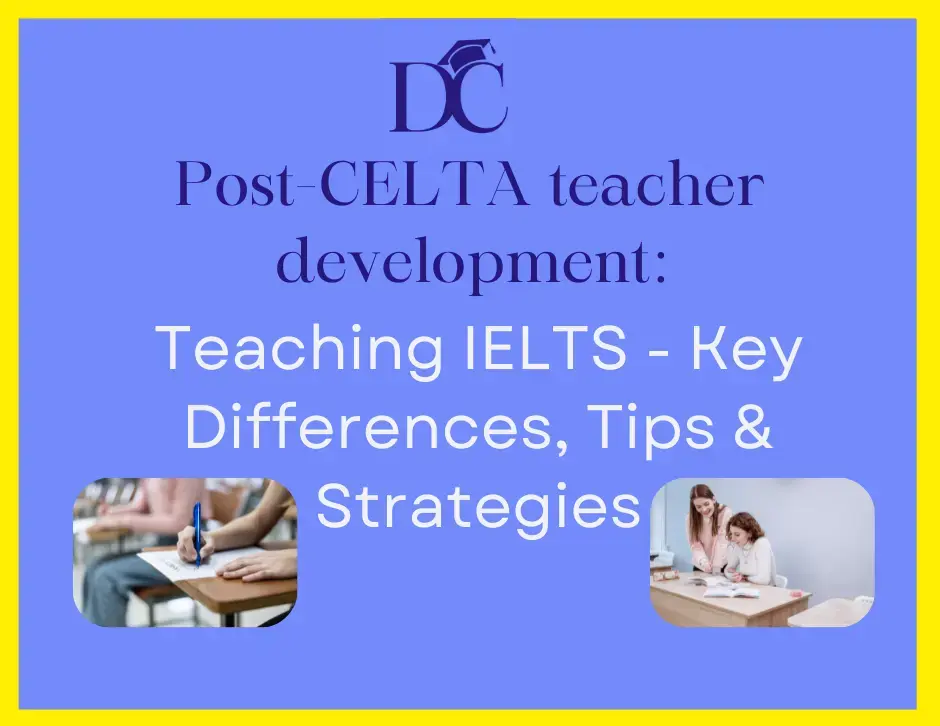How to plan a first lesson with a new class
- Connor O'Donoghue

- May 20, 2025
- 4 min read

Starting with a new group as a teacher should be fun, but it's very understandable that new teachers are nervous when thinking about a new group of students and feel a little lost when it comes to deciding what to do in a first lesson.
Find out as much as possible in advance
If you're working for a good school, you should be able to find out more about the level of the students, the materials they're using and other background information before you go in there. Many schools will provide new teachers with syllabuses and course plans so they know exactly how to get started and what is expected with a new group. In fact, in a school with a dedicated Director of Studies who knows they have a new teacher straight off their CELTA course, they may even sit down with you to help you plan your first lesson!
Getting to know your students
We've all cringed at the thought of doing ice-breaker activities, but if they have a clear purpose, they're really worthwhile! When planning getting to know you activities, one useful thing to know is whether the students already know each other. If they don't know each other, then it's very valid to do a series of getting to know you activities. If they already know each other and it's you who wants to get to know them, then you'll probably only plan one or two.
Getting to know you activities come in many shapes and forms and a quick google will provide lots of ideas for these. You might plan to start with a simple one to just get to know students' names and then move on to more complex activities where students could learn about each other's interests, hobbies, jobs, families and more! Remember that you want to monitor and hear as much as possible while students are speaking during these activities. You want to get to know them too! You want to get to know what their interests are and what they like speaking about as this will help you plan future lessons.
Make sure to give the students a chance to get to know you too! Of course, you need to keep professional boundaries, but it's really worthwhile giving students a "flavour" of you and your personality so that you can build some trust with them and also so you can demonstrate what you expect from them while they get to know each other.
Analysing students' needs
Another important thing to do in a first lesson is to analyse students' needs. This can mean many different things. For example, if you're teaching an exam preparation class, it can mean a quiz to find out what the students already know about the exam. If the students are learning English for work, you could find out why they're learning English, what's important for them and what kind of things they need to do through English. in general, it's important to ask students what they want to learn and why. Again, google is your friend and you'll find lots of needs analysis questionnaires that you can adapt for using in different classroom situation.
Analysing needs can also include a diagnostic test. You'll find these at the beginning of some grammar books and some text books. You can also find simple ones online. Giving students' a test will help guide you in terms of which areas of language they need most help with.
Set the scene for your course
You want a first lesson to set the scene for what's to come. It's important that a first lesson breaks the ice and includes lots of speaking tasks to help students feel relaxed and open so that they feel good about your class and want to come back. It's also important that they have something to take away, so that they feel like they're learning. Make sure to include language feedback and error correction after speaking tasks in a first lesson, so students can see that even though it's a friendly introductory lesson, you still intend to teach them and you take their language use seriously. This can really help build an atmosphere of trust.
At the end of your lesson, you should aim to go home, having learnt more about your students, their interests and their lives, but also their language learning needs and level. You should also have set the stage for future lessons and feel confident that you now know more to help you prepare for lesson number two!
Dr Connor O'Donoghue hails from Ireland and he started teaching English as a foreign language in Poland in 2003 and he became a CELTA trainer in 2008. He has taught and trained in Ireland, the UK, France, Italy, Slovenia, Macedonia, Poland, Russia, Kazakhstan and Vietnam. Connor also holds a Masters and a PhD in Education from Trinity College in Dublin. He has previously managed large teacher training centres in Vietnam and in London before founding DC Teacher Training.




Comments